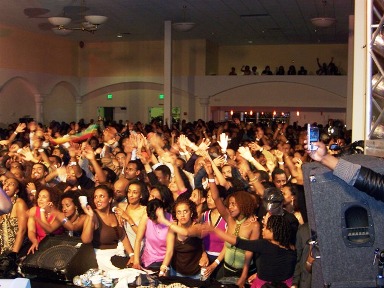
Source: Addis Fortune
By Tesfalem Waldyes
5 August 2008
The highly disputed charges against Ethiopia’s sensational singer Tewodros Kassahun, fondly called by his fans Teddy Afro, appears to take a different twist this week.
His attorney, Million Assefa, and Mesfin Negash, editor-in-chief of the Amharic weekly Addis Neger, are under custody after they are accused of contempt of court.
Million, who is also an attorney to the national electoral board, and one of the architects of the recently passed press law, represents the singer against charges of homicide involving hit and run. He is now under police custody, first arrested late Monday afternoon, after spending his day inside the Federal High Court in Lideta area, on Smut Street.
He has appeared before Judge Leul Gebremariam, presiding over the Federal High Court’s Eighth Criminal Bench, this morning before he was sent back to jail at the Addis Abeba Police Commission.
The presiding judge took an offense after a local Amharic weekly, Addis Neger, run a front page news story two weeks ago, reporting that Teddy Afro’s attorney decided to lodge complaints against Judge Leul at the country’s Judicial Administration Council.
The council was formed under constitutional mandate to recruit judges to the Prime Minister so that the latter nominates them to Parliament; and review their ethical and disciplinary conducts. Should it find judges guilty of breach of conducts, it advises parliament to remove them.
A verdict by Judge Leul two weeks ago, ruling for the singer to defend himself against prosecutors’ charge that he was involved in the death of Degu Yibeltal, a homeless young man killed in a car accident more than a year and half ago, promoted the attorney to contemplate lodging his complaints against the presiding judge.
Attorney Million is not alone to spend days in jail accused of contempt of court. The weekly’s Editor-in-Chief, Mesfin Negash, was called by police on Monday, August 4, 2008, to give his statement and remained under custody since then. He appeared before the court on Monday, and submitted a recording of the interview conducted by Addis Neger’s reporter, Abraham Begizew with Million; the newspaper run the story under the byline of the reporter.
Judge Leul asked Million this morning to look at the newspaper, and if he had anything to say. Million admitted to the court that the story was sourced to him, that he was rightly quoted by the newspaper. His attorney, Abebe Asamere, argued that his client has the right to express his views on a newspaper and it should not be taken as contempt to the court.
Abebe argued on three points: The right to appeal; the right to lodge complaints against a judge to a judicial review body; and the right to free expression guaranteed under the constitution.
“For a defending lawyer, the right to appeal is allowed,” Abebe told the court. “It is not a crime to explain this.”
Abebe said that if one has a complaint against the court’s procedure, he ought to appeal to the Council asking for a disciplinary inquiry. Reviewing a complaint against a judge is one of the three duties the council is given, according to Abebe. He also said that an individual has a basic right to express his views with a narrow limitation. If such view is deemed untrue or a threat, it would fall on the limitation; however, his client’s plans to lodge complaints against the Judge should not be taken as a threat or as prejudicial influence. Abebe also mentioned the act was done outside of the court, and pleaded for the release of his client.
The revised Criminal Code of Ethiopia, issued in 2005, states that if a contempt of court is not committed in an open court but while the judge carrying out his duties, the punishment would be imprisonment not exceeding six months or fine not more than one thousand Birr.
Judge Leul asked whether the defendant and his lawyer thought that they could give any comment on a case under litigation.
Interestingly, this question has brought a critical question the media in Ethiopia faces when covering court related matters. It has yet to be clear what constitutes outside the bounds of media coverage when cases are under litigation.
“This case is not yet finalized,” Judge Leul said. “However, you took it as a final verdict.”
The Judge demands an explanation from Million on his statement in the newspaper that the court replaced the job of that of the prosecutor. He also asked whether or not the court denied any opportunity of presenting witnesses. Million said all the things raised in the story were part of his planned appeals against the Judge.
“I said those are my reasons for appeal,” Million told the court. “The appellate court is the one that may or may not accept this appeal.”
Related: Jailed Singer Teddy Afro: ‘A Political Symbol’ (LA Times)
Judiciary, Press Freedom in Ethiopia Questioned over Teddy Afro’s Trial
Hot Shots from the Teddy Afro Concert in San Jose, CA (Tadias)

Teddy Afro told to return to court next year
Editor Jailed Over Teddy Afro’s Case


























One day soon, not only Teddy, but also Ethiopia also will be free!
God Bless Ethiopia
WE LOVE U TEDDY AFRO!
God bless ethiopia and its people! Soon u will be free! RESPEKT XXXXX
God bless etiopia and its people!! One day u will all be free!!! And so will tewodros kassahun!!!! I LOVE U TEDDY AFRO!!!! JUSTICE WILL BE SERVED! RESPEKT. XXXXXX